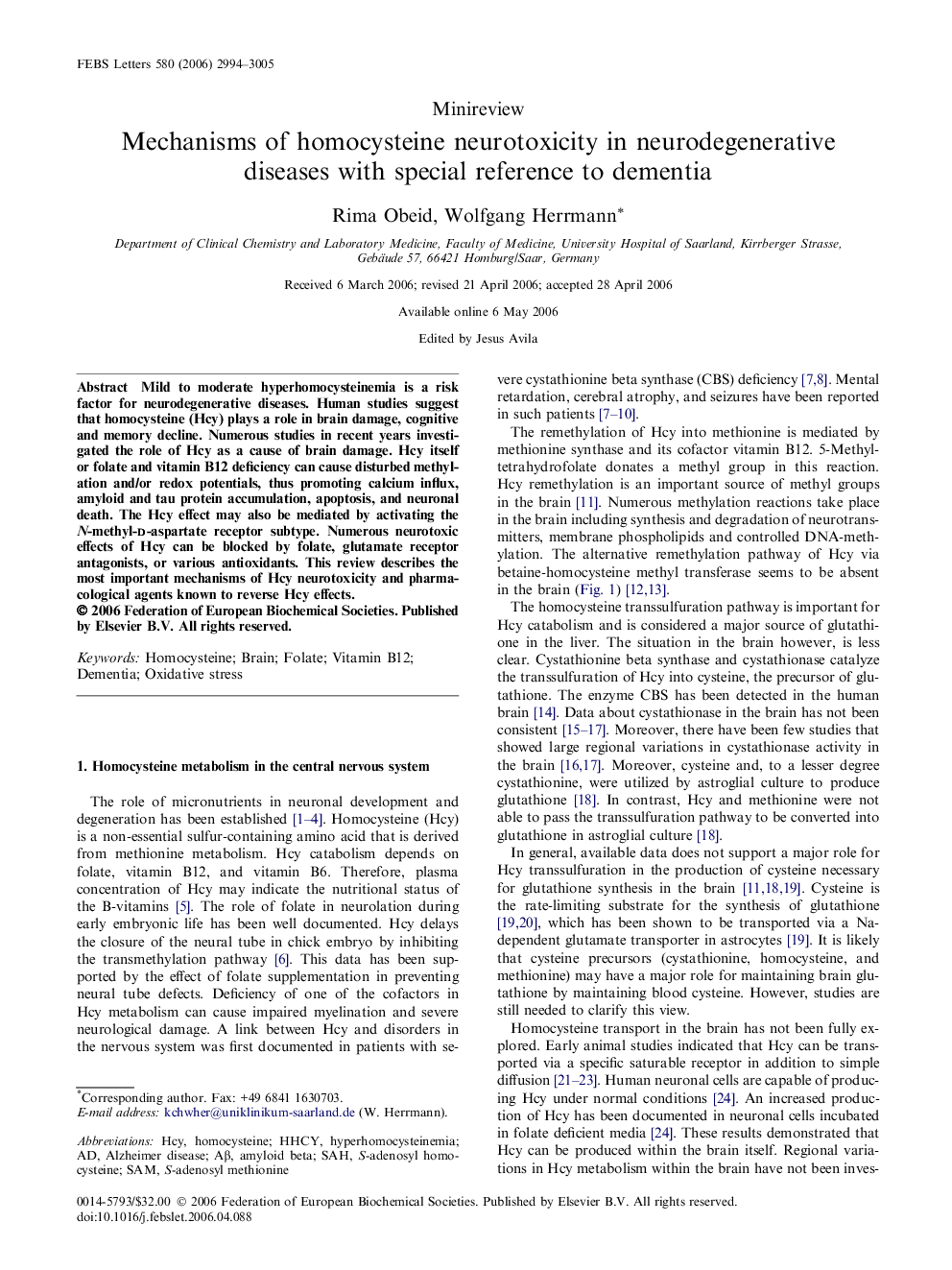| Article ID | Journal | Published Year | Pages | File Type |
|---|---|---|---|---|
| 2052577 | FEBS Letters | 2006 | 12 Pages |
Mild to moderate hyperhomocysteinemia is a risk factor for neurodegenerative diseases. Human studies suggest that homocysteine (Hcy) plays a role in brain damage, cognitive and memory decline. Numerous studies in recent years investigated the role of Hcy as a cause of brain damage. Hcy itself or folate and vitamin B12 deficiency can cause disturbed methylation and/or redox potentials, thus promoting calcium influx, amyloid and tau protein accumulation, apoptosis, and neuronal death. The Hcy effect may also be mediated by activating the N-methyl-d-aspartate receptor subtype. Numerous neurotoxic effects of Hcy can be blocked by folate, glutamate receptor antagonists, or various antioxidants. This review describes the most important mechanisms of Hcy neurotoxicity and pharmacological agents known to reverse Hcy effects.
